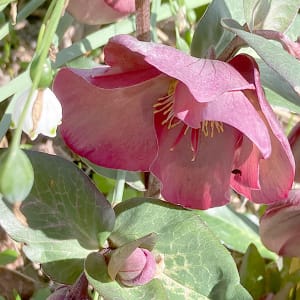Devotion
Devotion
Hannah Kent
Hannah Kent’s eagerly-awaited third novel is a departure from her earlier two although it continues with her themes of women on the fringes of their society, women who evoke suspicion.
The novel is divided into three sections: Before, After and Then.
It begins in 1836 in Prussia, where Hanne is part of an Old Lutheran community, now banned from the practice of their religion. Hanne is fifteen years old and dreading the responsibilities of womanhood, marriage and domesticity. She is a child of nature and has synaesthesia. She hears the natural world and feels, as well as sees, light and dark. This character trait allows Kent to use her evocative descriptive prose superbly throughout the novel. Hanne feels friendless and unloved in her community until she meets Thea, the daughter of newcomers. This begins an intense and all-encompassing friendship and promises of lifelong devotion that remain central to the novel.
The community embarks on a voyage to South Australia to build a community and practice their religion without persecution.
The six-month journey on the ship is brilliantly described: the, the seasickness, the scurvy and finally typhoid; the foul water and food; the storms and heat are all experienced by the reader. The horror is offset by beauty: the ocean, the whales, and the faith and stoicism of the passengers. The voyage allows Hanne and Thea to become closer as they share a bunk.
And then comes the twist that has alienated some readers. No spoilers here – for me it is a brave literary device that allows the narrative to continue as Kent wishes.
The community arrives, finds fertile land and, with backbreaking work and against seemingly impossible odds, builds a village and establishes productive farms.
Kent is writing about colonisation but does so skillfully, always with an undercurrent and understanding of the Peramangk people whose land it is. Hanne sees, hears and understands the Australian bush and the way it has been cared for. Hanne reflects, ‘All this way and they have disfigured the land back into Prussia’.
Hanne observes the ways of the new colony, the deaths, births, successes and failures and the superstitions and suspicions that surround Thea’s mother. Thea’s mother is a healer and midwife, suspected of witchcraft and of using a banned book that Thea now has in her possession. Hanne can no longer protect the one she loves.
Hannah Kent writes of colonial Australia and of love and devotion with great skill and beauty.



